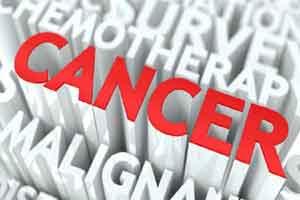- Home
- Editorial
- News
- Practice Guidelines
- Anesthesiology Guidelines
- Cancer Guidelines
- Cardiac Sciences Guidelines
- Critical Care Guidelines
- Dentistry Guidelines
- Dermatology Guidelines
- Diabetes and Endo Guidelines
- Diagnostics Guidelines
- ENT Guidelines
- Featured Practice Guidelines
- Gastroenterology Guidelines
- Geriatrics Guidelines
- Medicine Guidelines
- Nephrology Guidelines
- Neurosciences Guidelines
- Obs and Gynae Guidelines
- Ophthalmology Guidelines
- Orthopaedics Guidelines
- Paediatrics Guidelines
- Psychiatry Guidelines
- Pulmonology Guidelines
- Radiology Guidelines
- Surgery Guidelines
- Urology Guidelines
Childhood Cancer survivors able to conceive: Study

New York : Most women who have survived childhood cancer have a good chance of conceiving as the impact of modern chemotherapy regimens on the likelihood of becoming pregnant is generally small, says a study.
In contrast, male survivors of childhood cancer are significantly less likely to have children, especially if they are treated with chemotherapy regimens containing high doses of commonly used alkylating drugs and cisplatin, the findings showed.
"We think these results will be encouraging for most women who were treated with chemotherapy in childhood," said one of the researchers Eric Chow from the Fred Hutchinson Cancer Research Centre, Seattle, US.
The study was published in the journal The Lancet Oncology.
For the study, the researchers used data from the Childhood Cancer Survivor Study (CCSS) which tracks people who were diagnosed with the most common types of childhood cancer before the age of 21 and treated at 27 institutions across the USA and Canada between 1970 and 1999, and who had survived at least five years after diagnosis.
In this study, they examined the impact of various doses of 14 commonly used chemotherapy drugs on pregnancy and livebirth in 10,938 male and female survivors, compared with 3,949 siblings.
The study specifically focused on survivors treated with chemotherapy and who did not receive any radiotherapy to the pelvis or the brain.
By age 45, 70 percent of female cancer survivors became pregnant, compared to over 80 percent of siblings.
For male cancer survivors, the figure was 50 percent compared to 80 percent for siblings.
In male survivors, the likelihood of fathering a child generally decreased as cumulative exposure to alkylating drugs increased.
The findings are consistent with previous studies which have suggested that men who have undergone cancer treatment with these drugs have lower sperm count and reduced testicular volume.
Overall, female survivors were still less likely to conceive compared to siblings but the effect was much smaller compared to men.
cancerCCSSChildhood Cancer Survivor StudyEric ChowFred Hutchinson Cancer Research Centrejournal The Lancet Oncology
Source : IANSNext Story
NO DATA FOUND

Disclaimer: This site is primarily intended for healthcare professionals. Any content/information on this website does not replace the advice of medical and/or health professionals and should not be construed as medical/diagnostic advice/endorsement or prescription. Use of this site is subject to our terms of use, privacy policy, advertisement policy. © 2020 Minerva Medical Treatment Pvt Ltd